- Home
- Chris Ryan
Hijack
Hijack Read online
Contents
Title Page
SPECIAL FORCES CADETS
Chapter 1: Night Terrors
Chapter 2: Hunter-Killer
Chapter 3: Fish and Chips
Chapter 4: Atlantic View
Chapter 5: Frogmen
Chapter 6: Minisub
Chapter 7: War and Peace
Chapter 8: Albatross
Chapter 9: Click
Chapter 10: Stinger
Chapter 11: Submerged
Chapter 12: The Woman in the Window
Chapter 13: HMS Stirling
Chapter 14: Pathfinder
Chapter 15: RIB
Chapter 16: Hijack
Chapter 17: Fight to Win
Chapter 18: The Bridge
Chapter 19: Under Tension
Chapter 20: Flare
Chapter 21: Zigzag
Chapter 22: Incoming
Epilogue
Look out for more from the Special Forces Cadets
Chris Ryan
Copyright
SPECIAL FORCES CADETS
Siege
Missing
Justice
Ruthless
Hijack
Look out for Assassin
1
Night Terrors
It was dark and the wind was bone cold, but the whisky kept him warm.
Banfield staggered in a rough zigzag across the moor. The ground was marshy underfoot and the sodden grass bent and danced in various directions, battered by the gale coming in off the South Atlantic. Clouds scudded past a full moon. Now and then he stopped to look at them, but watching them made him dizzy. So he put the bottle to his lips, took another swig to settle his stomach and stumbled on.
Banfield’s liking for the bottle was well known here on East Island. He and his wife owned a smallholding on the outskirts of Stanley, the capital of the Falkland Islands. Banfield was as tough and weathered as the sheep he farmed, but he still wore a heavy storm coat tonight. In conditions like this, he’d be mad not to.
Banfield might be a drunk, but he wasn’t mad.
It was a lonely existence, farming sheep on the Falkland Islands. The population was tiny and it sometimes felt as if the wider world barely knew they existed. Of course, once people across the globe had known the name of this tiny archipelago off the southern tip of Argentina. Nearly forty years ago, the Falklands had been a theatre of war between the British, who owned and occupied the islands, and the Argentines, who claimed them for their own. Banfield had been a teenager then, but he still remembered the fear and the fighting. In his dreams he relived the arc of tracer rounds across the landscape. The boom of artillery fire. He still saw the wounded soldiers, their skin burned. He would wake up sweating and trembling, his heart racing, and he would think the invasion was happening all over again. His wife would reassure him that he had been dreaming, but his anxiety remained long after he had woken up.
The only thing that eased his nightmares was the whisky.
His night-time wanderings had become a habit. Once he had a bellyful of whisky, his personality altered. He became angry, belligerent and – to his mind – brave. He would not be cowed by the memory of ghosts. He would burst out of the front door of his cottage, leaving it swinging in the wind, and march across the bleak, desolate moors that had once seen all that fighting. He would raise his arms to the sky, clutching the bottle, and scream defiance into the wind. But his voice was no match for the elements, and the only ears that heard him belonged to the incurious sheep. Nobody came here on the sunniest days, let alone in the middle of a gale and in the dead of night. The lack of an audience didn’t stop him though. He would shout until his throat was raw, until the only thing to do was numb it with more whisky.
Tonight, he had shouted himself dry, though his face and beard were wet with the salt spray the gale had lashed through the night air. The ocean was a hundred metres away, and he was a good forty metres above sea level. Banfield realised he had instinctively walked the same route he had taken ever since he was a boy – to the top of a cliff overlooking an old smuggler’s cove, facing east. As he battled towards it, the wind pushed him back. It screamed, banshee-like, in his ears, as if warning him not to go any further. Banfield didn’t stop. Even when the wind knocked him down, he got to his feet again and carried on, clutching the bottle as if it was the hand of a child in danger.
He reached the top of the cliff. To his left were a collection of boulders and standing stones. As a boy, he used to hang out among those boulders with his friends, smoking cigarettes if they could find them. Now, though, he stood apart from them, a lone figure on the cliff edge. The moon disappeared behind the clouds. He collapsed onto the wet grass and stared out to sea. Banfield often thought that the ocean had a mind of its own. He had sat in this exact spot hundreds of times since he was a boy. Sometimes the sky had been blue and the air still. He had watched swifts and oystercatchers. After dark, he had occasionally seen nightjars, but tonight was too wild and windy for birds to be flying. He closed his eyes and briefly imagined the steely grey of naval ships on the horizon. That thought brought back the memory of his night terrors. He took another swig, his eyes still shut.
When he opened them again, the moon was out. His body cast a faint shadow on the grass. He followed it with his eyes until he was looking over the cliff edge again, across the cove and out to sea.
Which was when he saw them.
There were three at first, or so he thought – his vision was a little blurred. But no, he could definitely see three figures emerging from the stormy waters. The water first at shoulder height. Then waist height. Knee height. Then they were running onto the beach. Banfield felt a sickening thud of panic in his chest. He quickly lay down on his front so he couldn’t be seen on the clifftop, then wormed his way closer to the edge.
The three figures seemed to be crouching. He couldn’t tell from this distance whether they were facing out to sea or inland. Banfield kept still and held his breath. Then he saw more figures emerging from the sea. A line of five this time, evenly spaced. A precise military manoeuvre. The sight triggered his memories. He started to shake. As he buried his face in the wet grass, he saw again the soldiers who had been burned during the war. He was a child again, and he wanted to cry. Perhaps he was crying. He wasn’t sure.
How long he lay like that, face-down in the grass, Banfield couldn’t have said. When he finally lifted his head and looked back over the cliff edge, however, he saw nobody. The figures on the beach had gone.
He blinked heavily, trying to refocus. Maybe he just couldn’t see them any more.
No. The cove was empty. The figures had gone.
Or maybe, he thought as he knelt, they had never been there in the first place. The world was spinning, after all, and he had drunk a lot of whisky. The moon was reflected in the silver waves crashing onto the sand. But it illuminated nobody. He examined the bottle again, then upturned it and poured the remaining contents out over the grass.
He stood up with difficulty and, not in full control, staggered close to the cliff edge. Too close. He managed to pull himself back just in time. Hyperventilating at the thought of what would have happened had he fallen, he gave the cove one last, sweeping glance. It was still deserted. He turned his back on it and hurried inland.
His mind had been playing tricks on him, he decided. He had not seen people emerging from the sea. His brain had been showing him the things he feared, not the things that were really there. It was the alcohol. He was glad he had emptied out the last of the whisky. He really should stop drinking it, he thought, as he retraced his steps back home.
2
Hunter-Killer
Marcus was twelve and bored.
He had thought today would be fun. His mum and dad had said th
at they would see a whale. Marcus had seen lots of pictures of whales, of course, and he knew loads about them. He knew that they spouted air from their blowholes and that some of them could do a flip above the water, and this was called breaching. He knew that killer whales were actually a type of dolphin, and he was excited at the thought that he might see one today on their whale-watching trip.
But all he had actually seen was the cold, grey water of the South Atlantic. No blowholes, no killer whales, not even so much as a porpoise.
Yeah. Boring.
He was on the starboard side of the boat, clutching the railings and leaning over the side. He was daydreaming about a killer whale bursting through the surface of the water, its teeth bared. All the other whale-watchers were on the port side – his mum and dad and little sister. The two grizzled sailors in charge of the boat. Three couples with grey hair who were even older than his parents. And five teenagers – three boys, two girls – who didn’t seem to have any adults in charge of them.
Marcus couldn’t wait until he was a teenager like them. Then he could do cool things like go on holiday without Mum and Dad. He definitely wouldn’t choose the Falkland Islands though. It had taken so long to get here. A plane and then a boat, and he hadn’t even been allowed to bring his iPad. We’re coming on holiday to spend some time as a family, not to stare at a screen.
And now, to top it all, there were no whales.
He leaned a little further out over the railings, staring at the steely swell of the ocean. It was quite rough. Mum had given them all seasickness tablets, and the boat owners had almost cancelled the voyage before deciding at the last minute that it would be safe. Marcus wondered why you could see your reflection in water when it was still, but not when it was rough. Maybe he could see his reflection in the water, if he just leaned out far enough …
As he was trying this, the boat keeled heavily to starboard. Marcus felt a sickening emptiness in his stomach – not just because of the movement of the vessel, but because he realised he had been leaning out too far. He tried to grip the railings, but it was too late. He felt his feet leaving the deck, and saw the water coming terrifyingly close.
He was falling overboard …
Suddenly, he felt somebody grab his collar and pull him back. His feet touched the deck again. The ship straightened. Marcus gasped in panic. He knew how close he had been to disaster.
‘You okay, buddy?’
Marcus nodded, and turned to the person who had just saved him. It was one of the five teenagers. He had short brown hair, slightly messy from the sea breeze, thick eyebrows and a serious face.
‘I’m fine,’ Marcus said. He shrugged, as if to suggest he hadn’t needed this boy’s help at all.
‘What’s your name?’
‘Marcus.’
‘I’m Max,’ said the boy. ‘Hey, how about we go and join the others? They’re telling us some pretty interesting stuff, you know.’
Marcus frowned. ‘I bet you haven’t seen any whales.’
Max smiled. ‘No,’ he said. ‘No whales. But they’re not the only things hiding under the water. C’mon, let’s go find your mum and dad.’
‘How come,’ Marcus said as they walked along the deck towards the stern, ‘you and your friends aren’t with your mums and dads?’
Was it Marcus’s imagination, or did Max’s cheek twitch slightly?
‘I guess we’re just a bit older,’ Max said.
‘I’ll be thirteen next year. Maybe then I’ll be allowed to go on holiday by myself.’
‘Yeah,’ Max said with another smile. ‘Maybe.’
They found the others standing in a group at the bow.
Marcus could tell that his mum and dad hadn’t even noticed his absence. He hoped his new friend Max wouldn’t tell them what had happened. As Max re-joined the other teenagers, Marcus hung around, hoping to make friends with them. They looked interesting. One of the boys was black, with tight dreadlocks and an unfriendly expression. He was chewing gum. The other boy was wiry and smaller, with a pleasant smile. He reminded Marcus of a kid at his school whose family came from Syria, and he wondered if that was where this lad came from. Of the two girls, one looked Chinese. She had long straight hair that blew wildly in the breeze, and she seemed to be scanning the horizon intently. The other was white: pale skin, blue eyes, thick brown hair and an intricate piercing in her left ear.
‘Hey, everyone,’ Max said. ‘This is Marcus. Marcus, these are Lukas, Sami, Lili and Abby.’
The teenagers gave Max a funny look, as if to say, why are you introducing us to this kid? All of a sudden, Marcus understood. Max obviously thought he needed taking care of. He blushed, but he didn’t say anything. The teenagers were cool. It would be more fun hanging out with them than with his mum and dad or – even worse – getting cornered by one of the old couples.
Abby pulled a bag of sweets from her waterproof coat and offered him one. ‘Hey, Marcus,’ she said. ‘Bit of a bummer, hey? No killer whales and all.’ She had an Irish accent.
Marcus hesitated. Jelly babies. Abby cocked her head. ‘You like jelly babies, don’t you?’ She looked around conspiratorially and took a step closer. ‘If you don’t like jelly babies, you and me can never be friends.’
Marcus took a black jelly baby and popped it in his mouth. ‘Thanks,’ he said. He was about to tell Abby that the black ones were his favourites when one of the boat guys started talking.
If Marcus had been told to draw a picture of a sailor, he would have drawn someone like this. He had a weathered face and a grey beard and wore a yellow storm coat with a heavy hood. His voice carried over the sound of the wind and the sea.
‘Right, everyone,’ he said. ‘I’m sorry the marine life is being shy today, but I’ve brought you to this patch of water for a good reason. Now, to land-lubbers like yourselves, one patch of sea probably looks very much like another. But to us sailors, every patch is different.’ He seemed to gather his thoughts for a moment. ‘In 1982, Argentina invaded the Falkland Islands. The British response was swift. Part of that response was to establish a total exclusion zone around the islands. Any Argentine warship or aircraft entering this zone would be liable to immediate attack by the British. On 30 April that year, a British nuclear-powered hunter-killer submarine, Conqueror, detected the Argentine warship ARA General Belgrano approaching the exclusion zone from the south-west. The following day, British intelligence intercepted an Argentine order to launch a massive attack on the British task force surrounding the islands. The Belgrano was to be part of that attack, and so the order was given by the Prime Minister of the day, Margaret Thatcher, to sink it, even though it had not quite entered the exclusion zone.’
Marcus wasn’t bored any more. Like the teenagers, he stared at the sailor, rapt.
‘On 2 May 1982, the hunter-killer submarine fired three torpedoes at the Belgrano. Each torpedo was armed with an 805-pound Torpex warhead. Two of them hit the ship. The first blew off the ship’s bow but was prevented from causing more damage by the internal torpedo bulkhead. It was the second torpedo that did the real damage. It punctured the side of the ship and exploded in the machine room. The explosion tore a twenty-metre hole in the main deck. Smoke filled the ship. Water gushed in through the hole. The electrics failed so there was no way to pump out the water or make a distress call. The Belgrano started to sink, and the captain gave the order to abandon ship. Argentine and Chilean ships came to the rescue and managed to save over seven hundred souls. But the attack killed three hundred and twenty-three, all of them consigned to a watery grave.’
There was a short silence, during which Marcus’s head was full of thoughts of torpedoes and explosions and the deadly panic the men must have felt on board a burning, sinking ship. He put up his hand. ‘Is this where the Belgrano sank?’ he said.
The sailor shook his head. ‘No, lad. The exclusion zone had a radius of two hundred nautical miles, much too far for a day trip like ours. But this area is where the British task force would ha
ve come under attack, had the Belgrano remained intact. And who knows how many men and women would have lost their lives then? We’re sailing in the waters of a battle that never happened. I think that’s a humbling thought.’
As the captain said this, Marcus watched the teenagers. It seemed very strange to him, but they all wore precisely the same expression. A furrowed brow. Narrowed eyes. Like his mum, when she was saying something that she really meant.
‘I’ve lived on the Falkland Islands all my life,’ said the sailor. ‘We all live with the risk that we might come under attack again. Argentina is only three hundred miles away, and it still claims these islands are theirs. Who knows when they might have another go at reclaiming them?’
‘If they do,’ said Abby, ‘we’ll just have to fight them off again.’
For some reason, the adults on deck found that very funny. Marcus thought he understood why. It sounded like Abby was suggesting that she and her friends would be a match for the entire Argentine Navy. The adults laughed, but the teenagers didn’t. They were taking what Abby had said deadly seriously.
The adults’ laughter died away. There was an awkward silence. The five teenagers stared out to sea. Marcus stepped away from them and went to stand with his mum and dad. All of a sudden he didn’t feel entirely comfortable in the presence of Max, Lukas, Lili, Abby and Sami. There was something about them. Something dangerous.
‘Look! Marcus, look!’ His mum was pointing out to sea. The grey arch of a whale had risen to the surface. Everyone gasped, and one of the teenagers laughed with surprise and pleasure. Marcus gripped the railings tightly again, his mum’s hand fondly on his shoulder. All thoughts of war and battleships and dead sailors sinking to the bottom of the South Atlantic left his mind. They’d seen what they’d come to see, and Marcus wasn’t bored any more.

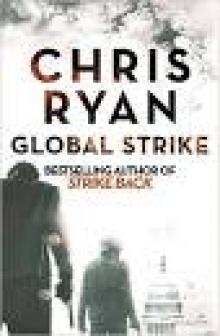 Global Strike
Global Strike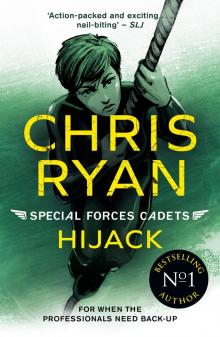 Hijack
Hijack Special Forces Cadets 2
Special Forces Cadets 2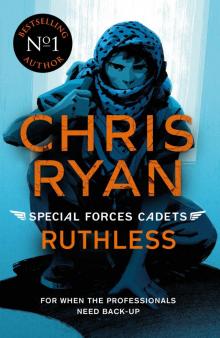 Ruthless
Ruthless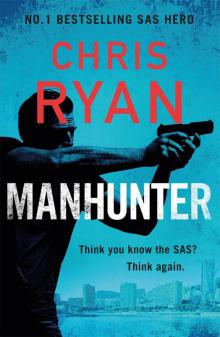 Manhunter
Manhunter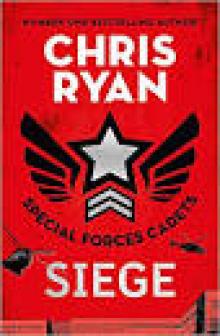 Special Forces Cadets 1
Special Forces Cadets 1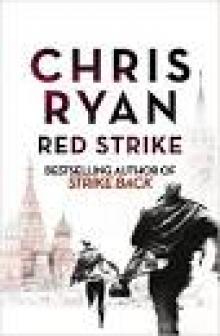 Red Strike
Red Strike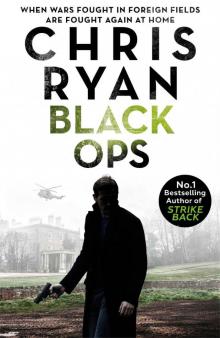 Black Ops
Black Ops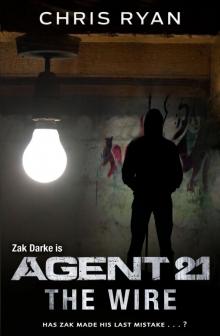 Agent 21: The Wire
Agent 21: The Wire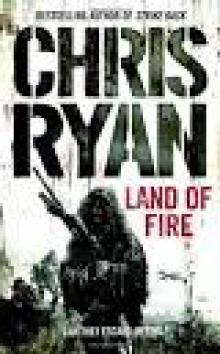 Land of Fire
Land of Fire Alpha Force: Fault Line
Alpha Force: Fault Line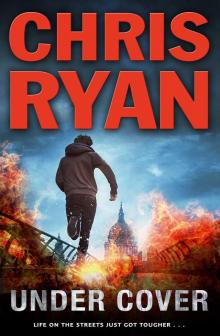 Under Cover (Agent 21)
Under Cover (Agent 21)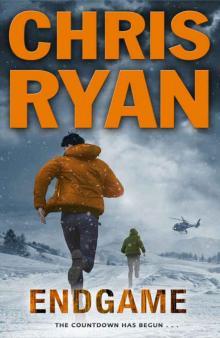 Endgame (Agent 21)
Endgame (Agent 21) Red Centre
Red Centre Blackout
Blackout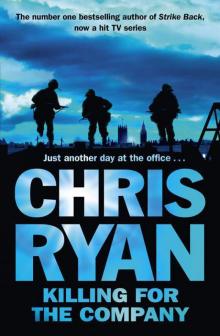 Killing for the Company
Killing for the Company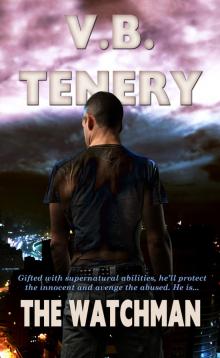 The Watchman
The Watchman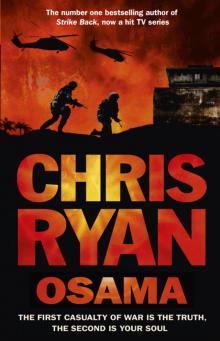 Osama
Osama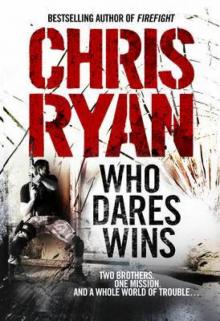 Who Dares Wins
Who Dares Wins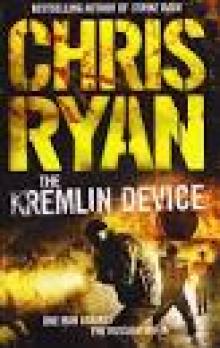 The Kremlin Device
The Kremlin Device Hunter Killer
Hunter Killer Alpha Force: Untouchable
Alpha Force: Untouchable Stand By Stand By
Stand By Stand By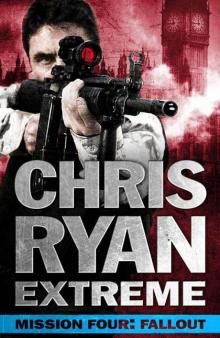 Chris Ryan Extreme: Hard Target: Mission Four: Fallout
Chris Ryan Extreme: Hard Target: Mission Four: Fallout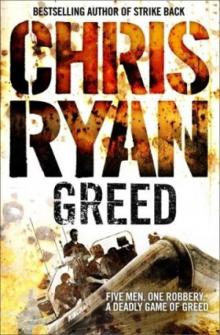 Greed mb-1
Greed mb-1 Alpha Force: Desert Pursuit
Alpha Force: Desert Pursuit Strike Back
Strike Back Greed
Greed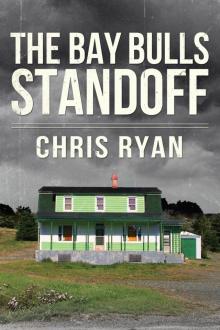 The Bay Bulls Standoff
The Bay Bulls Standoff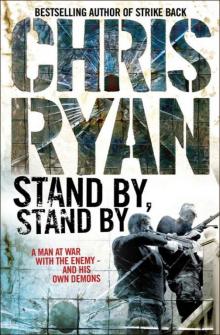 Stand By, Stand By gs-1
Stand By, Stand By gs-1 Outbreak
Outbreak Hunted
Hunted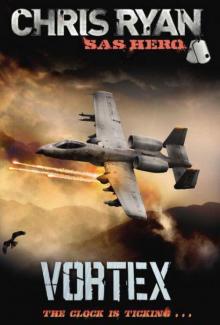 Vortex cr-4
Vortex cr-4 Rat-Catcher
Rat-Catcher Vortex
Vortex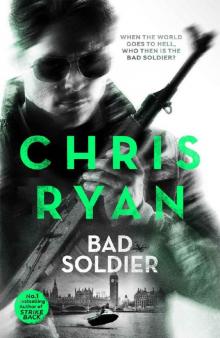 Bad Soldier
Bad Soldier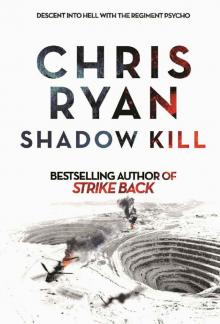 Shadow Kill: A Strikeback Novel
Shadow Kill: A Strikeback Novel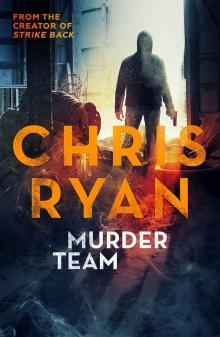 Murder Team (Kindle Single)
Murder Team (Kindle Single) One Good Turn
One Good Turn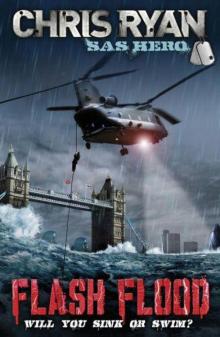 Flash Flood cr-1
Flash Flood cr-1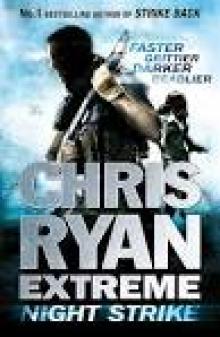 Night Strike
Night Strike Wildfire
Wildfire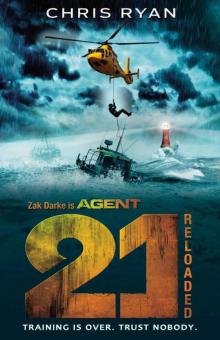 Agent 21: Reloaded: Book 2
Agent 21: Reloaded: Book 2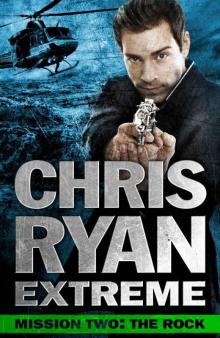 Chris Ryan Extreme: Hard Target: Mission Two: The Rock
Chris Ryan Extreme: Hard Target: Mission Two: The Rock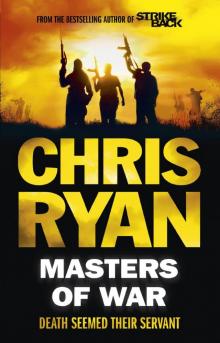 Masters of War
Masters of War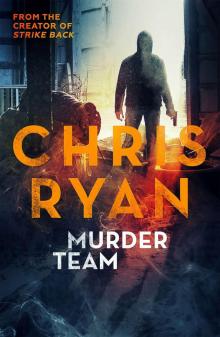 Murder Team
Murder Team War Dog
War Dog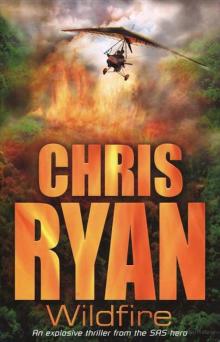 Wildfire cr-2
Wildfire cr-2 Survival
Survival The One That Got Away - Junior edition
The One That Got Away - Junior edition The Hit List
The Hit List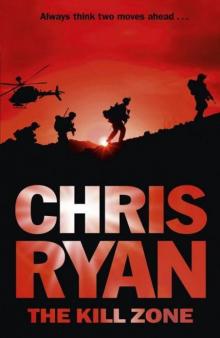 The Kill Zone
The Kill Zone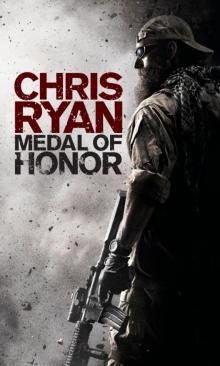 Medal of Honor
Medal of Honor Battleground
Battleground Twister
Twister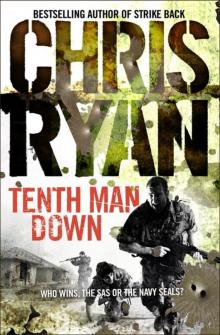 Tenth Man Down gs-4
Tenth Man Down gs-4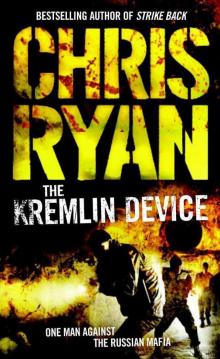 The Kremlin Device gs-3
The Kremlin Device gs-3 Hostage
Hostage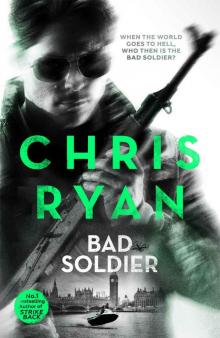 Bad Soldier: Danny Black Thriller 4
Bad Soldier: Danny Black Thriller 4 Alpha Force: Blood Money
Alpha Force: Blood Money Firefight
Firefight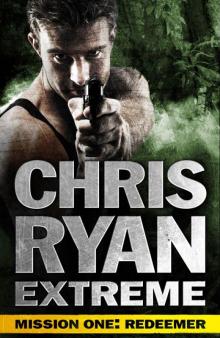 Chris Ryan Extreme: Hard Target: Mission One: Redeemer
Chris Ryan Extreme: Hard Target: Mission One: Redeemer Hit List
Hit List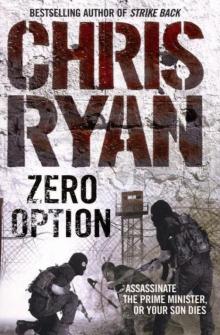 Zero Option gs-2
Zero Option gs-2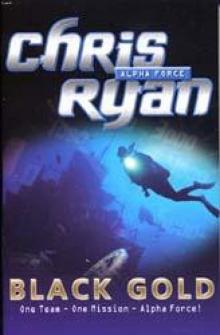 Black Gold
Black Gold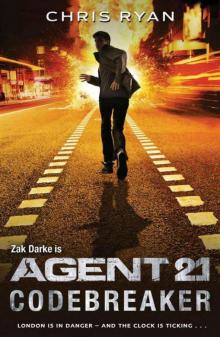 Agent 21: Codebreaker: Book 3
Agent 21: Codebreaker: Book 3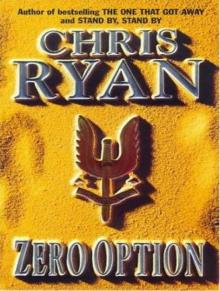 Zero Option
Zero Option Ultimate Weapon
Ultimate Weapon Tenth Man Down
Tenth Man Down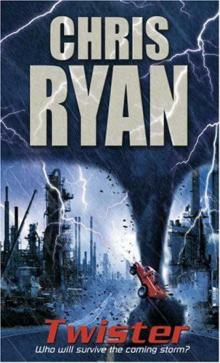 Twister cr-5
Twister cr-5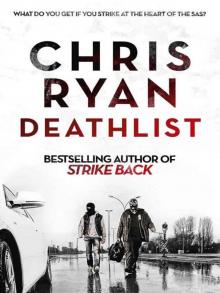 Deathlist
Deathlist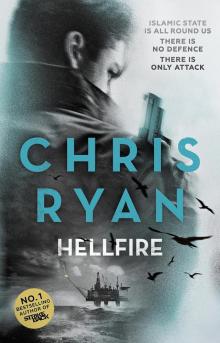 Hellfire
Hellfire Flash Flood
Flash Flood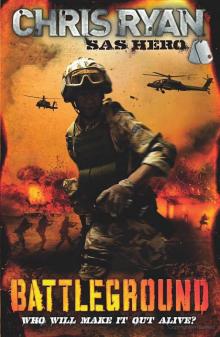 Battleground cr-6
Battleground cr-6 The Increment
The Increment